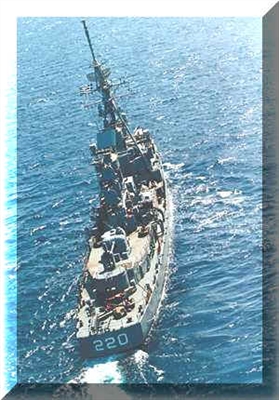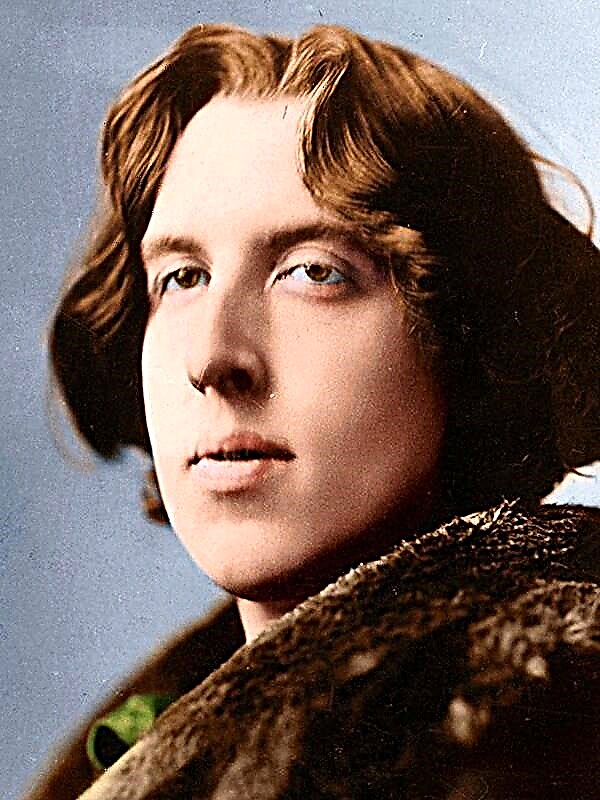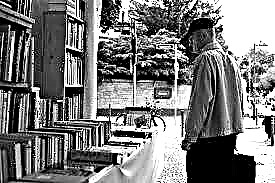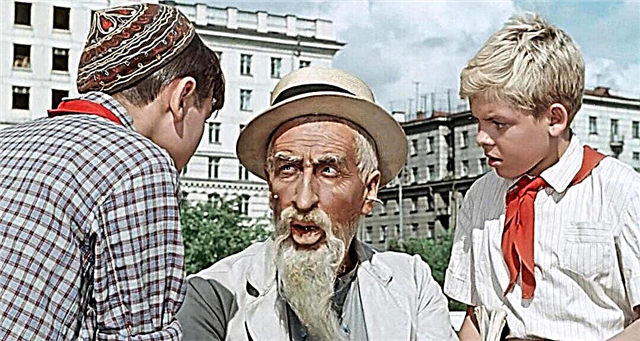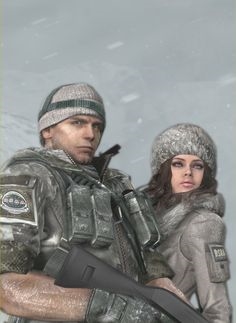Eleventh graders, as a rule, have to spend a lot of time preparing for exams. But properly organized leisure is just as important as the successful passing of the exam. The proposed summer reference list is a collection of arguments for writing and just a good selection of classics and modern books for every taste. Combine business with pleasure!
- M. Sholokhov "Quiet Don". This epic novel shows the fate of the Cossacks during the period of the revolutionary struggle of the classes. The author depicted the disintegration of the traditional values of this people, the destruction of families, the death of once prosperous villages. His book is sad, because there is not a single fate, not a single person that the meat grinder of the civil war would have regretted. Whatever you are - red or white - you will never find the truth in one of the parties, they all worship false idols. Where does a simple person go? The main character is looking for a place, but despairing for the finale to find him.
- A. Adamovich, D. Granin “The Blockade Book”. A collection of records of hundreds of people. For a long time, the authors collected stories from the inhabitants of Leningrad, studied archives, letters from the city, historical documents, and based on the materials compiled a large book - an epoch-making work about how ordinary people heroically defended Leningrad during the Great Patriotic War.
- M. Bulgakov "The Master and Margarita." Who does not know this novel? His productions in the theater, sensational film adaptations, quotes that have become aphorisms - all this gives primary knowledge about the plot, problems, characters. But, of course, it never hurts to learn more about him, because only then you can confidently take arguments from him and not think that you can make a mistake somewhere. The mystical story of love and creativity, good and evil, power and personality makes it possible not to climb into your pocket for an example, but always have it ready. Here, by the way, and book analysis.
- IN. Rasputin “Farewell to Mater”. This work is a set of original arguments on the themes of "ecology" and "man and nature." The problems of the native land, patriotism are also raised, a conflict between a person and the state is obvious. In addition, historical memory and the problem of fathers and children can be mentioned. In a word, this is a very rich material for your small but fruitful research. The plot is simple, dramatic: residents of a remote village are forcibly evicted from their homes. They want to flood this place, the authorities need it. But many old-timers do not want to leave their homes, their whole life is here. And they remain on doomed earth awaiting death.
- B. Parsnip "Doctor Zhivago" (summary) This novel became the reason for the persecution of its author in the USSR, but in the west this book was considered brilliant. The writer was awarded the Nobel Prize for the fact that he showed all the drama of the fate of the intelligentsia in the difficult years of revolutionary storms. The main character loses himself, trying to find a place in a new world where everything is hostile. He says goodbye to his family, escorts his love to another and dies, being a deserted and lost person. His tragedy is the tragedy of the whole class, devastated and destroyed in the name of the ideals of the class struggle. Here is the detailed analysis of the novel, it will help to use it as an argument.
- C. Aitmatov "And the day lasts longer than a century." In the first novel of the writer two worlds are described - the real and the magical. Magical world appears to the main character Edigey. His new environment is unusual and mysterious. A cosmodrome is being built at the family cemetery. This traces the transition from the old to the new, from ancient traditions to modern technology. Where it leads? What fate awaits the village, which residents return to after the war? The book teaches you to cherish moral values and not to forget about your roots.
- V. Astafiev “Tsar-fish”. The story tells how different can be the relationship between man and the natural world. We have two ways: either to become one with what surrounds us, or to destroy what life gives us. After reading the book, we come to the conclusion: we are responsible for every act committed. It is impossible to expect that someone abstract will fight poachers or save civilization from death. Our world is in our hands. What will end the confrontation between Ignatius and fish, personifying nature?
- A. Ostrovsky "Dowry." Not everyone has time to go through this drama within the course of literature, but in itself it is very useful for the graduate. The story of Larisa Ogudalova is quite instructive, and each character presents a separate topic for discussion. Paratov - treason, meanness, indifference. Harita Ignatievna - prudence, toadness, hypocrisy, but at the same time both maternal love and women's fate. Karandyshev is a small person representing revenge, bitterness and envy. Larisa herself is passion, beauty, talent and risk. But at the same time she personifies dishonor.
- I. Babel "The Conarmy." Babel’s name is familiar to almost everyone today. But recently, the writer's works have not been read or discussed. His talent was too peculiar, the mystical realism of the author was too unusual for the layman. The Konarmia series includes 38 stories. The work is called by many a chronicle of lost time. The book is about a civil war. Frantic riders jump from battle to battle, learn more and more legends. Are they real? Where will the frantic race lead Russia?
- I. Bunin “Dark Alleys” (summary) You can return to this book endlessly and choose a new story for yourself every day. Stories of meetings of emigrants, descriptions of nascent feelings, problems of moral choice, discussion of values in human life. The first story of the cycle, which gave it a name, is a piercing sketch of faded love and the vicissitudes of fate. One can trace an analogy between the feelings of the author and his heroes: they yearn for the past, they experience loss. Here is the detailed novel analysishowever, on our site you can find an analysis of each of them using the search.
- A. I. Kuprin “Garnet bracelet” (summary) The story is based on real events. The beautiful princess lived in the world. Once she received in the mail an expensive and beautiful bracelet. It turned out to be a gift from an unrequitedly in love young man. Zheltkov, the author of the message, knows how to love from a distance. He is very considerate, helpful, polite, disinterested and truthful. Despite the tragedy taking place with the author of the letters, Princess Vera Nikolaevna Sheina learns the secret of love and thanks Zheltkov with all her heart. Now she will begin a new life. And you pay attention to book analysis.
- V. Nabokov “The Gift”. The writer’s latest novel is not an easy one. The abundance of ornate turns, the transition from first person to third and vice versa, intermittent narration ... But behind all this is life - the life of the author, which we all know, and the life of the creator, half-fictional. Both of them know how to handle the word, both are going through difficult times. One writes a book about another. How true is she? What place in the novel is reserved for other heroes?
- A. Fadeev "The rout". The book is still controversial. Did the author really write by heart and mind or did he simply fulfill the order of the authorities? However, no matter what critics say, the work attracts the continued interest of lovers of historical paintings and descriptions of the inner world. Psychological portraits of the three main characters give an exhaustive idea of how war affects the character of a person. Dedicated to everything else analysis of the novel.
- E. Zamyatin “We”. A dystopia written in simple language, tough and realistic. The main character lives in a seemingly perfect world. Everything in the city is subject to a strict routine, dissent is punished. But once among the gray "numbers" people appear who want to undermine the inhumane foundations. All that remains is to attract as many supporters as possible and get away from the persecution. Suddenly, a hero who never felt discontent becomes a direct participant in the events. He meets his love - alas, not for long. The rest of the subtleties and details you will learn in book analysis.
- M. Bulgakov "The White Guard". What the writer has survived always, one way or another, affects his work. So Mikhail Bulgakov created a largely autobiographical novel. He paints images of representatives of the intelligentsia in the revolutionary period. It is not easy for everyone: both officers who cannot forget the duty, and ordinary people who do not have time to follow the course of action, who are forced to flee. The writer asks a terrible question: does it make sense to sacrifice life for the sake of the hetman, who left the people in difficult times? You will learn more about this in analysis of the work.
If other books are being taught at your school, write about it in the comments, please!

